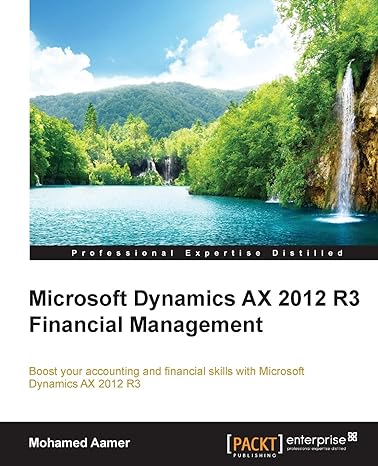Answered step by step
Verified Expert Solution
Question
1 Approved Answer
20. ACAMS is the leading organization dealing with III. Short Essay. In only 4-5 sentences, briefly answer the following four questions: (4 questions, 5 points
20. ACAMS is the leading organization dealing with III. Short Essay. In only 4-5 sentences, briefly answer the following four questions: (4 questions, 5 points each). A. You are the audit partner in a mid-sized accounting firm. Consider the following tasks that will to be considered during the middle of an audit. - Train the audit managers in techniques of data analytics. - Contact the client's bank about a $10,000 transfer marked "miscellaneous" which was found just after the close of the fiscal year being audited. - Meet the other audit partners for a working lunch. - Consider continuing education courses for next year. Based on Stephen Covey's. "The 7 Habits of Highly Effective People." in which order would you prioritize these tasks? B. After learning about the Bangladesh Bank heist, name some of the internal control you prioritize these tasks? B. After learning about the Bangladesh Bank heist, name some of the internal control deficiencies that could have been corrected that would have prevented the heist? C. Distinguish between the following kinds of risks: inherent risks, control risk, and detection risk. D. Based on the Journal of Accountancy article upon which you based your Student Audit Selfie, what were the three most important concepts that you learned from the article? Dell-Help/Psychology/nspirational "This remarkable book will be my gift to everyone I know." -Warren Bennis, author of On Becoming a Leader In The Seven Habits of Highly Effective People, author Stephen R. Covey presents a holistic, integrated, princi- ple-centered approach for solving personal and profes sional problems. With penetrating insights and pointed anecdotes, Covey reveals a step-by-step pathway for liv- ing with fairness, integrity, honesty, and human dig- nity-principles that give us the security to adapt to change, and the wisdom and power to take advantage of the opportunities that change creates. "This book has the gift of being simple without being simplistic." -M. Scott Peck, author of The Road Less Traveled "I am reading it with profit....It is most thoughtful and enlightening." -Norman Vincent Peale, author of The Power of Positive Thinking "Fundamentals are the key to success. Stephen Covey is a master of them. Buy his book, but most importantly, use it!" -Anthony Robbins, author of Unlimited Power 9780671 708634 ISBN 0-671-70863-5 $12.00 Cover design by Barry Littmann Author photograph by D Conley A Preside Book Published by Simon & Schuster New York 09901200 Chip to those values. In Fic long-, intermediate-, and energy would be ncludes the concept of accomplish those goals worth. ignificant contribution, cient" scheduling and e. The efficiency focus pportunities to develop d to enjoy spontaneous ne turned off by time t make them feel too the baby out with the eneration techniques to mality of life. tion that is different in is really a misnomer- to manage ourselves. well as realization. And cle of Influence. ime, fourth generation ancing relationships and intaining the P/PC Bal- ion of management can rix diagrammed on the e of four ways. me an activity are urgent mmediate attention. It's phone is urgent. Most wing the phone to ring, erials, you could get all to discuss a particular ou were there, it would onal visit. ren't many people who Important Not Important I HABIT 3 PLT FIRST THINGS FIRST 151 THE TIME MANAGEMENT MATRIX Urgent ACTIVITIES Pressing problems Crises Not Urgent Deadline-driven projects II ACTIVITIES: Prevention, PC activities Relationship building Recognizing new opportunities Planning, recreation III ACTIVITIES: Interruptions, some calls Some mail, some reports Some meetings Proximate, pressing matters Popular activities IV ACTIVITIES: Trivia, busy work Some mail Some phone calls Time wasters Pleasant activities would say, "I'll get to you in 15 minutes; just hold." But those same people would probably let you wait in an office for at least that long while they completed a telephone conversation with Someone else. Urgent matters are usually visible. They press on us; they insist on action. They're often popular with others. They're usually right in front of us. And often they are pleasant, easy, fun to do. But so often they are unimportant! Importance, on the other hand, has to do with results. If some- thing is important, it contributes to your mission, your values, your high priority goals. We react to urgent matters. Important matters that are not urgent require more initiative, more proactivity. We must act to seize opportunity, to make things happen. If we don't practice Habit 2, we don't have a clear idea of what is important, of the results we desire in our lives, we are easily diverted into responding to the Argent. Look for a moment at the four quadrants in the time management
Step by Step Solution
There are 3 Steps involved in it
Step: 1

Get Instant Access to Expert-Tailored Solutions
See step-by-step solutions with expert insights and AI powered tools for academic success
Step: 2

Step: 3

Ace Your Homework with AI
Get the answers you need in no time with our AI-driven, step-by-step assistance
Get Started


